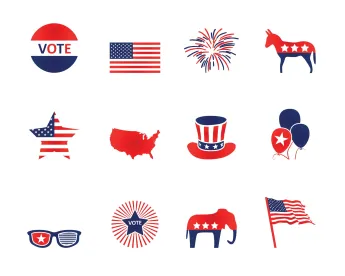U.S. elections are scheduled for Tuesday, November 6, 2018. In this election, all 435 seats in the U.S. House of Representatives and 33 of the 100 seats in the U.S. Senate are up for grabs. In addition, 36 states, Guam, and the U.S. Virgin Islands will hold elections for governor. Numerous state and local elections will also be held. In addition, there are numerous ballot measures to be voted on in 38 states, including those pertaining to redistricting, marijuana legalization, taxation limits, Medicaid expansion and healthcare, abortion, and the minimum wage, among others.
Although midterm election turnout is often low, due to polarization of the voting populace, the #MeToo movement, and continued concern over the recent Supreme Court of the United States nomination process, voter participation is likely to be relatively high. As such, employers may receive more requests for voting leave than in prior years. Fortunately for employers, the various state laws on voting leave have not changed since the 2016 elections.
States such as Connecticut, Delaware, Indiana, Maine, Montana, New Hampshire, New Jersey, North Carolina, Oregon, Pennsylvania, Rhode Island, South Carolina, Vermont, Virginia, Washington, and the District of Columbia do not have voting leave requirements. Unpaid leave of various lengths may be required in Alabama, Arkansas, Georgia, Massachusetts, and Ohio.
Other states require employers to provide employees with paid time off to vote. These include Minnesota (which requires an employer to give an employee “the time necessary” to get to his or her polling place, cast his or her ballot, and return to work); Nevada (where leave is subject to advance request and an employee must be provided “sufficient” paid time off); Texas (where paid leave is required unless polls are open during two consecutive nonworking hours); and Wyoming (which requires one hour of paid voting leave, not including meal breaks, unless polls are open for three or more consecutive hours during nonworking hours). More often, states require up to two paid hours of leave for voting purposes. This is the case in Alaska, California, Colorado, Hawaii, Illinois, Kansas, Maryland, Nebraska, New Mexico, New York, Oklahoma, South Dakota, and Utah. Up to three hours of paid voting leave is required in Arizona, Iowa, Missouri, Tennessee, and West Virginia.




 />i
/>i

